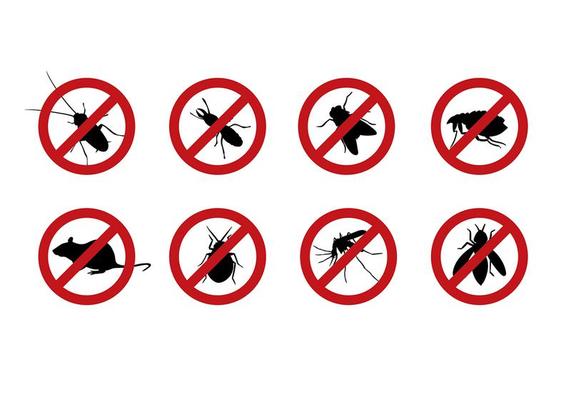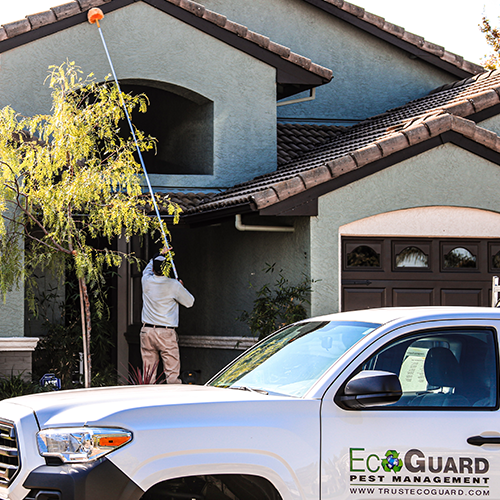Reliable Pest Control Homestead Experts for All Your Pest Issues
Wiki Article
Discover the Tricks of Insect Control: How It Functions and Process Revealed
Parasite control is a meticulous practice that involves a deep understanding of parasite habits, calculated preparation, and accurate execution. From determining the root triggers of infestations to applying tailored control steps, the process of bug control is a blend of science and technique aimed at preserving an unified environment.Pest Habits Understanding
Understanding the detailed habits of bugs is critical for effective insect control administration. By diving right into the habits and patterns of various bugs, professionals can create targeted strategies to eliminate infestations and prevent future occurrences. The behavior of roaches, such as their choice for dark and damp atmospheres, overviews pest control experts in determining where to focus treatment initiatives. Knowing that rodents are nighttime creatures assists in establishing up traps and lures throughout the most active hours. Furthermore, understanding the reproductive cycles of parasites like ants help in interrupting their swarms' development.By remaining abreast of the most recent research study on pest habits, insect control specialists can continually improve their strategies and stay in advance of advancing bug populaces. Eventually, a deep understanding of pest habits is a cornerstone of successful bug control monitoring.

Evaluation and Identification Approaches
Efficient insect control management counts heavily on precise assessment and accurate recognition approaches to precisely assess invasions and develop targeted eradication approaches. Assessment includes a thorough exam of the home to determine the extent of the insect trouble, recognize the kind of insect present, and situate prospective entry factors. This procedure might include visually inspecting usual hiding places, using monitoring devices such as video cameras or catches, and evaluating pest droppings or damage indications.Recognition is a crucial action that follows assessment, as various bugs need specific treatment approaches. Insect control professionals utilize their expertise and understanding of pest actions to determine the types existing accurately. This may entail examining physical features, such as size, shade, and markings, as well as studying the pest's behaviors and habitats. Sometimes, examples may be gathered for more analysis in a lab to verify the pest varieties.
Bug Control Actions Implementation
Having actually diligently examined and properly identified the pests present, the next important step is the execution of targeted insect control measures to efficiently eradicate the problem. Chemical treatments involve the use of pesticides to eliminate pests, while organic controls present all-natural predators to manage parasite populaces.Proper application of pest control measures calls for experience to make certain the safety of occupants and the atmosphere. By using targeted parasite control procedures, invasions can be efficiently removed, developing a healthier and pest-free atmosphere.
Environmental Impact Factors To Consider
Careful assessment of the prospective environmental effect is a vital facet when executing parasite control measures. Bug control approaches can have different results on the environment, including non-target varieties being influenced, contamination of soil and water resources, and disruption of the environment. It is necessary to take into consideration these elements to decrease any adverse consequences on the atmosphere.To minimize ecological influences, incorporated parasite administration (IPM) approaches are commonly advised. IPM Find Out More focuses on utilizing a mix of techniques such as organic control, habitat manipulation, and the targeted use pesticides as a last resource. Pest Control Homestead. By using an alternative technique, IPM aims to regulate bugs successfully while lessening harm to the environment

Continuous Monitoring and Prevention
Continual surveillance and prevention play critical roles in preserving reliable insect control techniques over time. When initial pest control measures have actually been carried out, ongoing surveillance comes to be important to track bug task degrees and make sure that the picked techniques are working properly. Regular examinations by experienced specialists enable the very early detection of any kind of indications of insect resurgence, making it possible for speedy activity to be taken prior to the infestation rises.
Preventive procedures are similarly important in sustaining a pest-free setting. Applying techniques such as securing access factors, keeping cleanliness, correct waste administration, and reducing sources of food and water deny pests of the fundamentals they need to flourish. By proactively dealing with these factors, the chance of a pest problem is dramatically decreased.
Moreover, safety nets add to the long-term success of insect control efforts, lessening the demand for reactive treatments and linked expenses. By integrating recurring tracking his explanation and prevention into a detailed pest monitoring strategy, people and services can properly guard their residential properties against unwanted burglars.
Verdict
In verdict, insect control entails understanding insect actions, conducting complete examinations, carrying out control actions, taking into view it now consideration ecological effects, and maintaining ongoing monitoring and prevention. By complying with these actions, parasite infestations can be effectively managed and controlled. It is vital to take a positive approach to pest control to protect both human health and the atmosphere.By staying abreast of the latest research study on parasite habits, insect control specialists can continuously refine their methods and remain in advance of developing pest populaces.Having thoroughly examined and precisely recognized the parasites present, the next vital step is the implementation of targeted bug control actions to efficiently remove the problem.In addition, selecting environmentally friendly bug control products and methods can considerably reduce the environmental impact of insect management methods - Pest Control Homestead. Once first parasite control procedures have actually been applied, continuous tracking comes to be important to track parasite activity levels and guarantee that the chosen methods are working effectively.In verdict, bug control includes understanding bug habits, performing thorough inspections, implementing control steps, considering environmental impacts, and maintaining ongoing surveillance and prevention
Report this wiki page